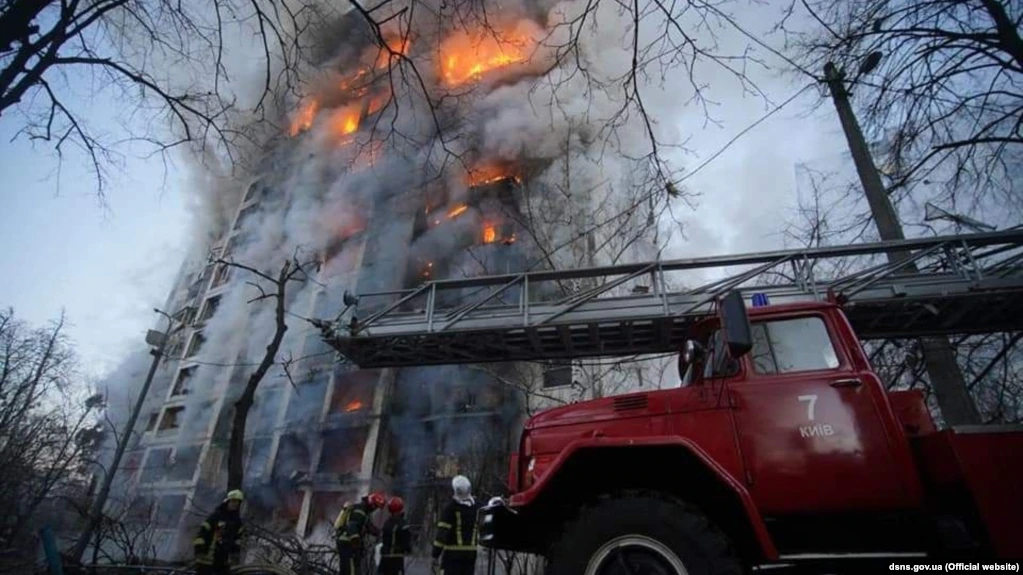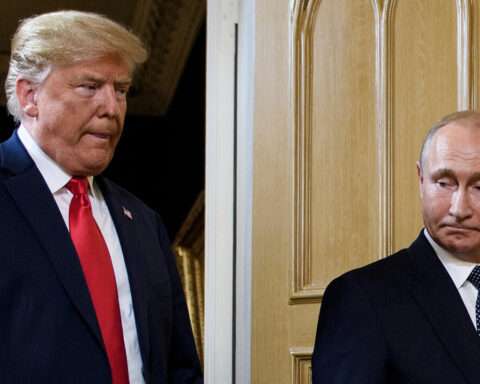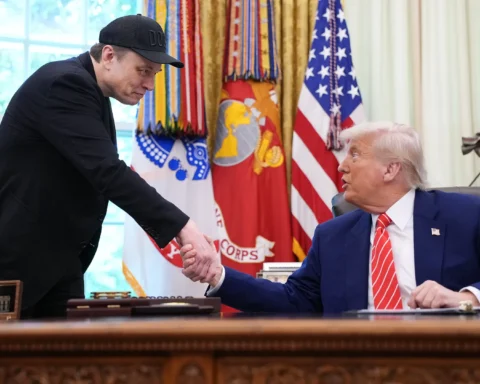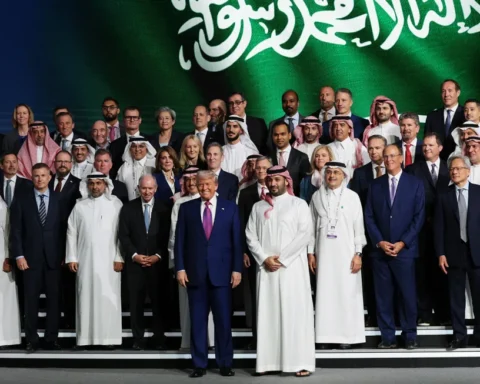Russia and Ukraine have traded sharp accusations of launching infrastructure attacks, reigniting tensions mere hours after a high-profile phone call between Russian President Vladimir Putin and U.S. President Donald Trump.
The call, aimed at brokering a limited ceasefire focused on halting strikes against energy infrastructure, appeared to falter as both nations reported fresh assaults—Russia alleging Ukrainian drone strikes on its oil facilities, and Ukraine claiming Russian drones targeted civilian sites.
This rapid escalation has cast doubt on the fragile agreement and underscored the challenges facing Trump’s push for peace in the ongoing conflict. Drawing from major media reports, this article examines the fallout, the context of the leaders’ conversation, and the broader implications for the war-torn region.
The latest chapter in this saga unfolded on March 19, 2025, as reports of overnight attacks surfaced just after Putin and Trump’s Tuesday discussion. The call, lasting over an hour, saw Putin agree to a temporary pause on strikes against Ukrainian energy targets—a scaled-back version of the 30-day ceasefire Trump had sought.
Ukrainian President Volodymyr Zelenskyy had endorsed the broader truce but accepted the limited deal. Yet, by dawn, both sides pointed fingers: Ukraine’s leadership decried Russian drone barrages, while Moscow claimed Kyiv struck a southern Russian oil depot. This swift breakdown has fueled skepticism about the ceasefire’s viability and Trump’s diplomatic leverage over Putin.
A Fragile Ceasefire Unravels
The Putin-Trump call was billed as a step toward de-escalation, with the White House describing it as the “first step in a movement to peace.” According to CNN, Trump pressed for a 30-day halt to all fighting, a proposal Kyiv had already greenlit. Putin, however, balked at the full truce, agreeing only to spare Ukraine’s energy grid—a concession some saw as self-serving, given Russia’s recent battlefield gains. The Kremlin confirmed Putin ordered a halt to such attacks, but hours later, Zelenskyy reported over 40 Russian drones hitting Ukrainian targets, including civilian infrastructure in Sumy and Kyiv.
NBC News noted the immediate fallout: air raid sirens blared in Kyiv as explosions rocked the capital, forcing residents into shelters. Ukraine’s Foreign Ministry condemned the strikes as proof of Russia’s intent to “prolong the war at any cost,” with chief of staff Andriy Yermak posting on Telegram, “Russia is attacking civilian infrastructure and people—right now.” Meanwhile, Fox News reported Russia’s defense ministry claiming it downed 57 Ukrainian drones, 35 over the Kursk region, suggesting a retaliatory Ukrainian offensive. The timing of these events has left analysts questioning whether either side ever intended to honor the deal.
Russia, Ukraine Trade Accusations of Infrastructure Attacks After Putin-Trump Call
The subheading mirrors the central theme: Russia and Ukraine trading accusations of infrastructure attacks in the wake of the Putin-Trump call. Reuters detailed Russia’s account of a Ukrainian drone strike igniting a fire at an oil depot near Kavkazskaya in Krasnodar, a key facility for oil exports. Local authorities evacuated 30 workers, suspending operations, though no injuries were reported. The Russian Telegram channel SHOT shared footage of the blaze, amplifying Moscow’s narrative of Ukrainian aggression. Russia’s aviation agency also briefly grounded flights from three eastern cities, citing “air safety” amid drone threats, per BBC reports.
On Ukraine’s side, the New York Times highlighted damage to civilian sites, including two hospitals in Sumy evacuated after Russian drone strikes. A 60-year-old man was injured in the Kyiv region, where homes were hit, according to Governor Mykola Kalashnyk. Zelenskyy, addressing the nation, accused Putin of exploiting the ceasefire talks to buy time, urging global pressure on Moscow. The contrasting claims—Russia pointing to energy infrastructure losses, Ukraine to civilian harm—paint a picture of mutual distrust that threatens to unravel any diplomatic progress.
The Putin-Trump Call: High Stakes, Mixed Results
The call itself was a diplomatic gamble for Trump, who has touted his rapport with Putin as a means to end the war. CNN reported that Trump, speaking from Air Force One days prior, hinted at discussions over “dividing up assets” like land and power plants, including the Russian-held Zaporizhzhia nuclear facility. The White House readout framed the energy ceasefire as a stepping stone to broader talks, including a Black Sea maritime truce, set to begin in Jeddah, Saudi Arabia. Yet, Putin’s refusal to commit beyond energy targets—and his demand for an end to Western aid to Ukraine—revealed the limits of Trump’s influence.
Fox News quoted Trump envoy Steve Witkoff, who called the energy pause a “relatively short distance” to a full ceasefire, appearing on Hannity to defend the deal. However, NBC News cited experts like Kristine Berzina of the German Marshall Fund, who labeled it “a very small step forward,” noting Putin’s reluctance to cede ground. The Kremlin’s insistence on halting foreign military support to Kyiv, absent from the White House statement, underscored Putin’s strategic calculus: a pause could allow Russia to regroup while Ukraine’s defenses weaken without aid.
Battlefield Dynamics and Strategic Calculations
The infrastructure attacks reflect deeper battlefield realities. Russia’s campaign has long targeted Ukraine’s energy grid, aiming to cripple its economy and morale as winter looms. The New York Times noted that Kyiv’s retaliatory drone strikes on Russian fuel depots have kept pressure on Moscow, disrupting its oil exports—a critical revenue stream. The limited ceasefire, if honored, might disproportionately benefit Russia by easing this economic strain, as Maria Snegovaya of the Center for Strategic and International Studies told Reuters.
Ukraine, meanwhile, faces a precarious moment. NBC News reported Trump’s recent suspension of U.S. military intelligence sharing with Kyiv, a move some link to Russia’s intensified strikes. Posts on X speculated that this gap enabled Moscow’s drone barrage, though no direct evidence confirms this. Zelenskyy’s plea for inclusion in talks—echoed in a BBC interview where he sought a call with Trump—highlights Kyiv’s fear of being sidelined in a U.S.-Russia deal. The New York Times suggested Putin might be testing Trump’s resolve, exploiting the president’s pro-Russia leanings to secure concessions.
Global Reactions and Domestic Fallout
The international community watched with unease. BBC coverage captured European leaders’ dismay as the ceasefire crumbled, with allies like France and Germany urging stronger support for Ukraine. In the U.S., Trump’s approach drew mixed reactions. Fox News praised his “tough stance” on peace, with Trump telling Ingraham Angle that Russia had Ukraine “nicely encircled” in Kursk—a claim Zelenskyy disputes. Conversely, CNN reported Democratic criticism that Trump’s coziness with Putin undermines Kyiv, pointing to his Oval Office outburst at Zelenskyy days earlier.
Public sentiment on X reflected this divide. Pro-Trump voices cheered his diplomacy, while others decried it as naive, with one user posting, “Putin played him like a fiddle.” The New York Times noted a broader U.S. polling dip—54% disapprove of Trump’s early-term handling—suggesting the Ukraine crisis could dent his domestic standing. For Ukraine, the stakes are existential: each attack erodes its capacity to resist, amplifying Zelenskyy’s call for global unity against Moscow.
What Lies Ahead: Ceasefire or Chaos?
The path forward remains murky. Reuters reported that Jeddah talks could still salvage a maritime ceasefire, but the overnight strikes signal deep mistrust. Trump’s threat of “large-scale sanctions and tariffs” on Russia, issued weeks ago per BBC, looms as a potential lever, though his reluctance to condemn Putin outright weakens its bite. The New York Times predicted a critical next few weeks, with Russia’s response to U.S. pressure—and Ukraine’s resilience—shaping the conflict’s trajectory.
For Putin, the limited ceasefire offers a tactical pause without sacrificing momentum. Zelenskyy, meanwhile, faces a balancing act: supporting peace efforts while resisting a deal that cedes territory or sovereignty. NBC News quoted a Ukrainian official warning that “negotiations without us won’t work,” a sentiment echoed across Kyiv’s leadership. As drones buzz and fires burn, the Putin-Trump call’s promise of peace feels distant, replaced by the grim reality of a war neither side seems ready to end.
This article is based on reporting from BBC, CNN, NBC News, Fox News, the New York Times, Reuters, and other outlets, offering a multifaceted view of a conflict at a crossroads.
Focus Keywords: Russia Ukraine infrastructure attacks, Putin Trump call, ceasefire breakdown, energy infrastructure strikes, Ukraine conflict 2025, Trump diplomacy, Russia Ukraine accusations






